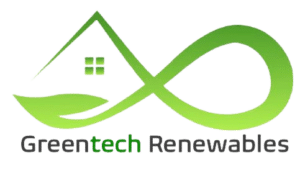Key considerations in solar panel design are crucial. Panel orientation and shading significantly impact efficiency. Maintenance issues like overheating risks and cleaning affect performance.
Balancing aesthetics with efficiency is essential for optimal results. Energy tariffs influence battery optimization strategies. Protecting panels from pigeons preserves effectiveness. Quality installation services are vital for long-term performance.
Depth of discharge directly impacts battery lifespan. Ensuring all these factors are carefully considered is essential to enhance solar panel design and maximize system efficiency and effectiveness.
Table of Contents
ToggleFactors Impacting Solar Panel Efficiency
Efficiency of solar panels is influenced by factors like panel orientation, shading, and cleanliness. Maximizing solar energy capture requires optimal panel direction, free from shadows and obstructions.
Regular cleaning to remove dirt and debris is crucial for maintaining efficiency and preventing reduced output. Managing these aspects ensures peak performance, maximizes energy production, and enhances return on investment.
Overheating Risks and Maintenance Issues
Maintenance and overheating risks are crucial factors in the operation of solar panel systems. Integrated panels, despite their attractive aesthetics, pose higher costs and maintenance challenges due to overheating susceptibility. On-roof panels, on the other hand, benefit from better airflow, reducing overheating risks.
When selecting panels, it is vital to balance aesthetics and performance. Additionally, a reliable battery backup system is essential to ensure uninterrupted power supply, especially during power outages. Understanding the limitations of solar storage batteries and exploring options like Alpha ESS for backup loads can help mitigate maintenance issues and enhance system reliability.
Energy Tariffs and Battery Optimization
Understanding the impact of energy tariffs on battery optimization is crucial for maximizing the efficiency and cost-effectiveness of solar panel systems.
Optimizing energy storage through tariff selection, utilizing overnight tariffs for cost-effective storage, and comprehending depth of discharge for efficient battery usage are key factors in enhancing the performance of solar panel systems.
Importance of Pigeon-Proofing Panels
Pigeon-proofing panels is crucial for maintaining solar energy system efficiency and longevity. Pigeon behavior, including fouling, shedding feathers, and nesting, can significantly impact solar panel cleanliness.
Delaying pigeon-proofing may increase costs as bird mess reduces panel efficiency and energy production. Ostriches damaging solar panels highlight the importance of proactive bird-proofing.
Regular maintenance to deter pigeons from perching or nesting is essential for peak solar performance. Addressing pigeon-related issues promptly helps prevent damage and preserves system effectiveness over time.
Trusted Solar Panel Installation Services
Prioritize reliability and expertise when considering solar panel installation services for a smooth transition to renewable energy solutions. Quality installation is crucial for long-term performance, and customer satisfaction ensures a positive experience.
Choose a service provider that excels in installation quality and focuses on customer satisfaction to guarantee a well-executed shift to solar energy. Rest assured that your investment in solar panels will yield expected returns and contribute to a sustainable future by emphasizing these aspects.
Understanding Depth of Discharge
Understanding the depth of discharge is crucial for maximizing the efficiency and longevity of a solar panel system. This concept relates to the percentage of a battery's capacity that has been utilized.
By managing discharge levels effectively and balancing them with recharging cycles, users can prolong the lifespan of solar storage batteries. This approach helps prevent overstraining the batteries and enhances their overall performance and cost-effectiveness.
Proper management of discharge levels is essential for maintaining the health of the system and optimizing battery utilization.
Key Considerations for Solar Design
A solar panel system's performance and efficiency rely on various factors that need assessment:
- Panel orientation: Ideal sunlight exposure boosts energy production.
- Shading: Identifying and addressing shading issues prevents power generation loss.
- Balancing aesthetics with performance is crucial in selecting efficient panels.
- Efficiency levels are crucial for selecting panels that deliver both good looks and high performance.



